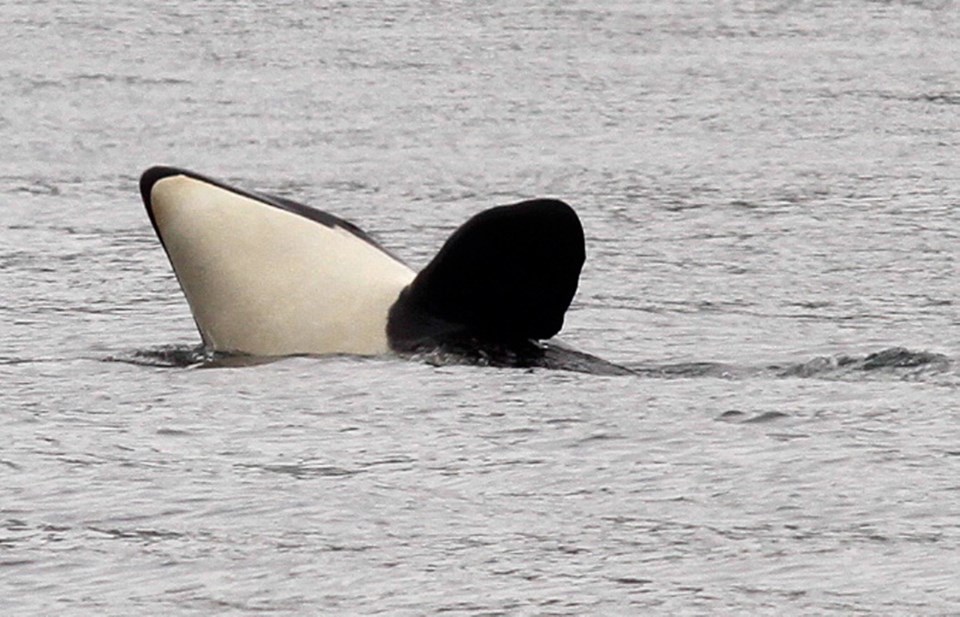The Canadian government will spend $61.5 million on new measures to protect endangered southern resident killer whales whose numbers have dipped to 74 after two high-profile deaths this summer.
Fisheries Minister Jonathan Wilkinson said the measures take aim at three major threats to the whales: a lack of chinook salmon, contaminants in the water and boat noise that interferes with the whales’ ability to hunt for food.
“We would certainly say that it is a bold and comprehensive approach to doing this,” he said in an interview.
The plan includes:
• fish hatcheries to rebuild chinook salmon stocks, particularly on the Fraser River
• habitat restoration to promote the long-term recovery of chinook runs
• expanded slow-down areas for ships in order to reduce underwater noise and physical disturbance of the whales
• agreements with ferry operators and the shipping industry to formalize voluntary measures that reduce vessel noise
• vessel monitoring systems to prevent encounters between ships and whales
• tighter controls on five key pollutants, including two flame retardants, to lessen their impact on whales
Wilkinson said the government is also continuing to investigate the possibility of adding a new critical habitat area off the coast of southwestern Vancouver Island, where the whales are known to feed and socialize.
The southern residents, whose population has declined to 74 from a high of 97 in 1996, were the focus of international attention for weeks this summer.
First, an adult female orca, J35, made headlines after carrying the carcass of her dead calf through the Salish Sea for more than two weeks.
Then, an emaciated three-year-old female orca, J50, became the focus of a joint Canada-U.S. rescue effort. The whale eventually vanished and is presumed dead.
“Certainly, the plight of the killer whales is underlined by some of the challenges that we saw with respect to the two killer whales this year,” Wilkinson said.
But he also pointed to a World Wildlife Fund report this week that found global wildlife populations have fallen by 60 per cent in the last four decades.
In Canada, mammal populations dropped by 43 per cent, amphibian and reptile populations dropped by 34 per cent, fish populations dropped by 20 per cent, and some types of birds have lost between 43 and 69 per cent of their populations.
Wilkinson said the global decline in biodiversity “is really, really sobering for all of us who are very concerned about ensuring that we actually have an ecosystem that is going to support our kids and our grandkids going forward.”
“And we have a lot of work to do in Canada in terms of really effectively addressing species at risk.”
Wilkinson said the measures announced Wednesday build on the $167-million “Whales Initiative” announced in the 2018 budget.
As part of that initiative, the federal government reduced the overall chinook harvest by up to 35 per cent this year and closed the fishery in three key foraging areas in Juan de Fuca Strait, near the Gulf Islands and at the mouth of the Fraser River. Further restrictions are being considered for 2019.
Christianne Wilhelmson, executive director of the Georgia Strait Alliance, said the government plan is welcome, but short on specifics.
“I think, compared to some of the other announcements we’ve heard recently, it was a promising one,” she said.
“We still are of the belief that, if we are truly committed to all these things at once and getting them quickly, an emergency order is actually the best tool.”
The alliance is among a group of six environmental organizations that sued Wilkinson and federal Environment Minister Catherine McKenna in September. The groups want the ministers to ask cabinet for an emergency order to protect the orcas.
“An emergency order allows you to cut through all the bureaucratic delays and the processes,” Wilhelmson said. “It gives power to government in these emergency situations to speed up the process to make change.”
— With a file from The Canadian Press



